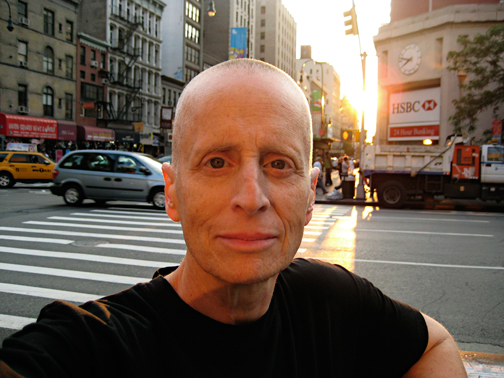
Reflecting on Leslie Feinberg’s life and legacy. (Image: transgenderwarrior/Flickr)
This year saw the passing of a revolutionary communist and transgender icon, Leslie Feinberg. Feinberg, who described herself as anti-racist, white, working-class, secular Jewish, female, butch lesbian, was sixty-five when she died of complications from Lyme disease and related infections in November. An organizer and journalist with the Workers World Party since her early twenties, it was the publication the semi-autobiographical novel Stone Butch Blues in 1993 that made her a household name among lesbian, feminist, queer and trans people in the US. The book tells the story of Jess, whose lesbian sexuality and masculine gender presentation marked her as an outcast in the 1950s factory town where she comes of age. Feinberg’s novel was followed by Transgender Warriors (1996), a non-fiction celebration of gender crossers across the centuries—a textual reclamation project that was for trans people what Judy Chicago’s “The Dinner Party” was for feminists.
In Stone Butch Blues, the narrator’s depictions of butch-femme working class bar culture, where police violence against sexual minorities was the norm rather than the exception, and Jess’s decision to live as a man, evoked intense feelings of identification and pathos in the novel’s readers. Well into the 2000s, the novel was almost ubiquitous on women’s and gender studies syllabi, alongside Judith Butler’s Gender Trouble and Bodies that Matter. From my own experience teaching these texts, it was often Feinberg’s novel, rather than the gender theory, that helped students rethink what they thought they knew about the gender binary.
The success of Stone Butch Blues made Feinberg a highly sought after speaker on the college circuit. Feinberg used her celebrity as a gender revolutionary to ask her audiences to see the connections between struggles for trans equality and economic justice. And her class politics wasn’t an anodyne, bring-back-the-New-Deal Keynesianism, it was full-on communism. Indeed, Feinberg’s communism constituted the true plumb line of her life’s work. For her, radical queer and gender politics couldn’t be isolated from the fight against class oppression. As she explained in Trans Liberation: Beyond Pink and Blue (1998), the goals of trans liberation “should not fall a yard short of genuine social and economic liberation for everyone.” Many of the queer, trans, and women’s studies students drawn to Feinberg’s books and public lectures might have entered that encounter never having read a word written by Marx, but most of them left it knowing much more about how the policing of sexually and gender helped reproduce economic inequality. That a good slice of trans activists today include economic justice in their political vision is due in no small measure to Feinberg’s legacy.
Author’s Note: I have used the female pronouns in this piece, following the lead from the obituary of Leslie Feinberg written by her wife, activist and poet Minnie Bruce Pratt. Feinberg, who used he/him and ze/hir in other contexts, once told an interviewer she preferred the female pronouns in non-trans contexts because they did not gloss over the social contradiction between her female birth sex and masculine gender expression.
.
Paisley Currah is the editor of TSQ: Transgender Studies Quarterly and professor of political science and women’s & gender studies at Brooklyn College and The Graduate Center of the City University of New York.

